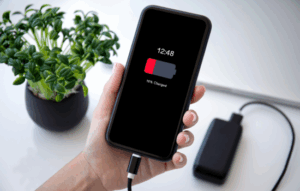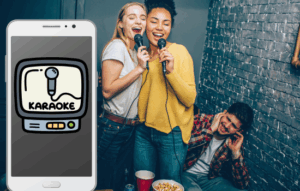Advertisements
Learning to play the piano can seem like a daunting challenge at first, but with the right tools, patience, and consistent practice, anyone can master this beautiful instrument.
If you've always dreamed of sliding your fingers across the black and white keys and creating music, now's the time to start!
Advertisements
The Importance of Choosing a Good Method
Before you begin, it's crucial to define how you want to learn. Do you prefer in-person classes, online tutorials, or mobile apps?
Each method has its advantages and disadvantages, so it's best to combine several options according to your needs.
See also
Advertisements
- How to Tune Your Guitar: Complete Beginner's Guide
- Learn to Play Guitar Fast
- Charging Your Cell Phone with Solar Energy: A Sustainable Practice
- Firefighter Course: Everything You Need to Know
- Glucose Test: Everything You Need to Know
In-Person Classes
Private lessons remain one of the most effective ways to learn piano. A teacher can correct mistakes in real time, adapt lessons to your level and musical style, and motivate you to overcome specific challenges.
Benefits of in-person classes:
- Immediate feedback: A teacher can quickly identify technical problems.
- Personalized learning: The curriculum adapts to your goals and learning speed.
- Structured discipline: Regular classes encourage consistency.
However, classes can be expensive and less flexible in terms of scheduling.
Learn Self-Taught
If you prefer to learn at your own pace, you can do so with free online resources, books, and tutorials. Platforms like YouTube have thousands of videos that explain everything from the basics to advanced techniques.
Tips for self-learning:
- Set a schedule: Dedicate at least 20-30 minutes a day to practice.
- Use easy scores: Start with simple songs to familiarize yourself with the keys and notes.
- Divide the tasks: Learn one hand at a time before trying to play with both.
Apps and Digital Tools for Learning Piano
In the digital age, mobile apps have become a powerful tool for learning piano. They offer interactive lessons, games for practicing music theory, and real-time feedback.
Recommended Applications
1. Simply Piano
Simply Piano is ideal for beginners. The app detects the notes you play in real time and guides you through popular songs. It also includes tutorials for learning basic music theory.
2. Flowkey
Flowkey is known for its intuitive approach. You can choose songs you like and learn them step by step. It also includes technique exercises to improve coordination.
3. Pianote
Pianote combines video lessons with practical exercises. It also has an active community to answer questions and share progress.
4. Yousician
Yousician offers a gamified approach, turning learning into a game. You can compete against yourself to improve your skills.
Understanding Music Theory
Understanding music theory is essential for confident piano playing. Although it may seem complex, you can start with the basics:
Notes and Scales
The piano has 12 main notes that are repeated in different octaves. Familiarize yourself with major and minor scales, as these are the foundation of most songs.
Basic Chords
Chords are combinations of notes that create harmonies. Learn major (C, D, E, F, G, A, B) and minor chords to easily play accompanying melodies.
Reading Scores
Although you can play by ear, learning to read sheet music will open up a world of musical possibilities. Start with simple sheet music and gradually progress to more complex pieces.
Practice Makes Perfect
The key to mastering the piano is constant practice. Here are some tips to maximize your practice sessions:
Divide your time
- Heating: Spend 5-10 minutes on technical exercises, such as scales and arpeggios.
- Study of pieces: Work on specific songs. Break the song down into smaller sections and perfect them one by one.
- Improvisation: Experiment with different notes and chords to develop creativity.
Be Patient
Results won't come overnight. There will be days when you feel frustrated, but that's part of the process. Celebrate every small step forward, like playing a new song or improving your technique.
Stay Motivated
To avoid burnout, it's essential to maintain high motivation. Here are some strategies:
- Set clear goals: For example, learning a specific song in a month.
- Listen to piano music: Get inspired by listening to great pianists like Ludovico Einaudi or Yiruma.
- Share your achievements: Play for friends or family, or upload videos to social media.

Frequently Asked Questions (FAQ)
How long does it take to learn to play the piano?
Time depends on dedication and focus. With daily practice, you can play simple songs in 2-3 months and develop intermediate skills in a year.
Is it necessary to have a real piano to start?
Not necessarily. You can start with an electronic keyboard, but if you plan to progress, consider investing in a good-quality acoustic or digital piano.
What kind of songs should I learn first?
Children's songs or folk tunes with simple patterns are ideal for beginners. Some options include "Twinkle Twinkle Little Star" or Beethoven's "Ode to Joy."
What do I do if I feel stuck?
Try changing your routine, learning a new technique, or seeking guidance from a teacher. Sometimes, taking a day off can also help.
References
- Simply Piano (Download: Android | iOS).
- Flowkey (Download: Android | iOS).
- “Piano for Dummies”, Blake Neely.
- YouTube Tutorials: Channels like “Piano Lessons on the Web” or “Hoffman Academy.”
Learning to play the piano is an exciting journey that will allow you to explore your creativity and express your emotions through music. With the right combination of methods and tools, you'll be playing your favorite songs sooner than you imagine!




